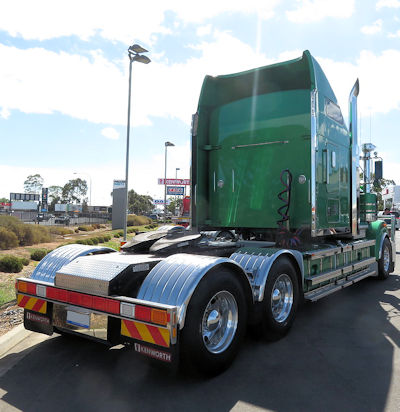Operators of Heavy Vehicles and all persons (including corporations) involved in a chain of responsibility for a heavy vehicle should be aware of their Primary Duty in accordance with s.26C of the Heavy Vehicle National Law (HVNL).
If you have a HVNL matter you’d like to discuss with an expert in traffic law, please call Proctor and Associates on 02 9687 377.
The HVNL deals with safety by way of eliminating and/or minimising public risk. In the legislation, S.26C(2)(b) states:
(b) ensure the party’s conduct does not directly or indirectly cause or encourage –
(i) the driver of the heavy vehicle to contravene this Law, or
(ii) the driver of the heavy vehicle to exceed a speed limit applying to the driver, or
(iii) another person, including another party in the chain of responsibility, to contravene this Law.
Heavy Vehicle National Law – Recent Decision
In a recent decision of the Supreme Court (Transport for New South Wales v De Paoli Transport Pty Ltd [2022] NSWSC 1678 (9 December 2022) Transport for New South Wales appealed against the leniency of sentences imposed by a magistrate, in respect of the Company, a director and an employee for a breach of s.26C.
The company was charged with a Category 2 offence which occurs where there is a duty under s.26C, a contravention of such duty and the contravention, exposes an individual or class or individuals, to a risk of death or serious injury or illness.
The Director and employee were charged with a Category 3 offence, which occurs where there is a duty under s.26C and the person contravenes the duty.
The magistrate, in the Local Court imposed a fine of $15,000 in respect of the Company, a fine of $6,000 in respect of the director and a fine of $3,000 in respect of the employee.
Transport for NSW successfully appealed to the Supreme Court which increased the company fine to $180,000; the director’s fine to $15,000; and the employee’s fine to $15,000.
The Company De Paoli Transport Pty Ltd operated a fleet of 32 (fatigue related) trucks out of Leeton (NSW) and party to a chain of responsibility as a road transport operator and employer. The Director and employee were responsible for scheduling drivers’ trips to and from Leeton, including Brisbane, Sydney and Melbourne.
The Company was charged in that it failed to provide and maintain adequate systems.
Examples of these include reviewing risks, checking that drivers had valid driving licences, safe driving plans, driver fitness, compliance with speed limits, not breaching their work/rest hours, safety scheduling drivers and ensuring that the drivers reported notices issued to them by police or Transport for NSW.
It was further charged that it failed to provide adequate training to drivers (fatigue related matters, log books, speeding, drive and rest hours).
It was the prosecution case that the failures by the Company exposed the drivers and public to a risk of death or serious injury as a result of the drivers losing control of their heavy vehicle. (s.26G of HVNL: Category 2 offence: Max Penalty for a corporation: $1,500,000.)
The Director and employee were charged pursuant to s.26H of HVNL as being a party to the chain of responsibility as schedulers of the drivers of the heavy vehicles. This offence is a Category 3 offence: Max Penalty for an individual – $50,000.
The Supreme Court found that the magistrate had erred in his approach to the National Heavy Vehicle Law in not emphasising the risk or deterrence and thus imposing manifestly inadequate sentences.
In increasing the penalty the Judge found that the Company, operating 32 vehicles, in long-distance routes, had for 22 months failed to provide and maintain adequate systems in place and failed to provide adequate training to drivers.
His Honour stated [76-77]: “It is an agreed fact that those failures exposed the drivers of the heavy vehicles and the public to a risk of death or serious injury as a result of drivers losing control of their heavy vehicles… The failures were not minor or merely in relation to documentation. [77] Integral to the responsibility of an operator of a heavy vehicle is the obligation to take steps to ensure that its drivers are properly trained in managing driver fatigue. This does not merely involve training drivers how to fill out their logbooks but ensuring that drivers understand how to manage fatigue. Again, this necessarily must involve having adequate systems in place to ensure that drivers were both not speeding and were properly managing fatigue issues. Again, any such systems must ensure that drivers were not driving in breach of their work/rest hours”.
Trucking Companies and individual truck drivers need to be aware of these provisions and ensure that they have proper systems and training procedures in place in order to avoid prosecutions for what could be very costly indeed.






